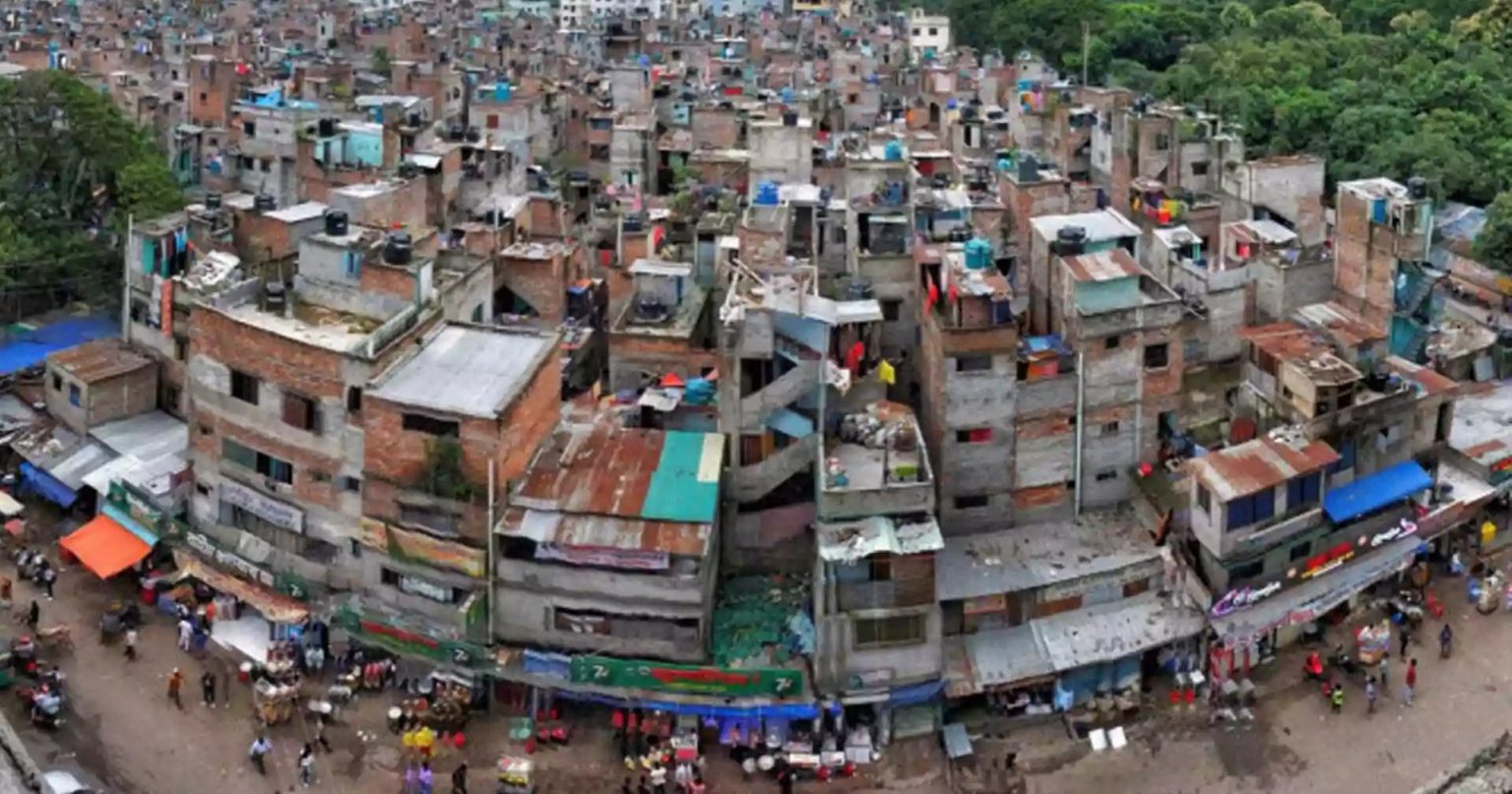Acts of abduction, extortion and drugs continue unabated at Geneva Camp in the city’s Mohammadpur area, despite regular raids by police, the Detective Branch, Rapid Action Battalion (RAB) and joint forces.
Locals say drug peddling is a daily trade in the area, and many untoward incidents often arise due to such illegal activities. In its nine blocks, drugs are sold at 20 spots, with three types of narcotics available.
The control of such spots has shifted hands following the change in regime after the July 2024 mass uprising.
On Monday afternoon, a teenage boy named Shah Alam was hacked to death in a clash between two groups. Police later arrested two suspects, Faisal and Selim, with machetes.
Later in the evening, joint forces launched a raid on the Geneva Camp.
Shaukat Ali, president of the Stranded Pakistani General Repatriations Committee (SPGRC), said many are directly involved in the drug trade, while others support it.
“The buying and selling of illegal narcotics happen out in the open. No matter how hard the administration tries, they cannot eliminate the drug trade. There are influential quarters behind this trade,” he told Times of Bangladesh.
Residents say frequent clashes occur over dominance and drug trade disputes. Over the past three days, crude bomb explosions and violence have injured several people, including a woman.
Police said Bunia Sohel, son of Abdus Salam of Sector 7 in Geneva Camp, has at least 30 cases against him, including three murder cases with Mohammadpur Police Station, and others related to abduction, extortion and drugs.
On October 31 last year, RAB arrested Sohel in Sylhet’s Kotwali area, but he was released from jail a few months later and resumed running the drug trade through associates. On 4 June this year, the army and RAB-2 seized drugs worth over Tk 1 crore from a pharmacy linked to him.
On Sunday morning, Sohel and his associate Beji Nadim allegedly detonated a crude bomb in front of a shop owned by another drug dealer known as Picchi Raja. He is accused in multiple cases, including murder and drug offences.
Dhaka Metropolitan Police’s Tejgaon Division Deputy Commissioner Ibne Mizan said, narrow alleys in Geneva Camp pose challenges, but regular drives are underway to bring drug dealers to justice.
The camp – built on 14 acres – houses about 50,000 people in 5,000 small shacks across nine blocks or sectors. While there are only four entry points, the camp has over 150 alleys. Residents work in various professions, including CNG drivers, butchers, tailors, cooks and grocers.
Cannabis, heroin and yaba tablets are sold at no fewer than 20 spots throughout the camp. Around 1,500 people of different ages, including women and children, are involved in the trade.
Bunia Sohel’s group operates in Sectors 7, 3 and 5, alongside groups led by Kamal Biryani, Sayedpua and Bhaiya Selim. Bashir and Chuya Selim’s groups control Sectors 1, 2, 4, 6 and 8, supported by groups led by Boba Biryani, Laddu Kasai, Anwar, Charku Nur Islam, and Picchi Raja.
Camp Chairman Masud Qadri said, “The main problems are drug trade and turf wars. One group sells drugs, while another controls them for profit. This always leads to conflict.”
Qadri is also the senior joint general secretary of Ward 32 BNP, with his office located nearby on Gaznabi Road.
According to residents, Bunia Sohel’s group includes Beji Nadim, Tuntun, Lala, Dagi Rubel, Bhatija Rubel, Sagir, SK Nasim, Fory and his brother Arif, Motki Sima and Chanda.
Meanwhile, Picchi Raja, son of Abdul Motaleb of House 78 in Block B, has associates including Khorshed, Boro Raja, Adil, Sajjat, Khan Kamran, Shojon, Bilum and Faizan.
Mohammadpur Police Station Officer-in-Charge Ali Iftekhar Hasan said, “Bunia Sohel and Picchi Raja are known drug dealers working with separate factions. Their names are in police records.”
“Police keep regular watch over Geneva Camp. But in this densely populated area, criminals operate strategically in the alleys,” he told TIMES of Bangladesh.
Since Friday, several clashes and crude bomb blasts between the Sohel and Raja groups have occurred over control of drug turfs, injuring a woman named Madina.


